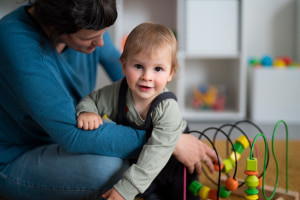Early childhood development is a critical period of growth and learning that shapes the child’s future development. Early childhood experiences significantly influence neural development, learning capacity, and emotional resilience. This comprehensive course explores how children develop cognitively, socially, emotionally, and physically during their early years. You will acquire essential knowledge and skills to recognise developmental milestones and identify potential delays early. We will cover the role of attachment in social and emotional development.
Participants will study several key developmental theories to help us understand the complex process of human development, like Piaget's cognitive development theory, Erikson’s Psychosocial Development Theory and Vygotsky’s Sociocultural Theory. We examine various types of assessments, such as developmental checklists, to evaluate milestones in infancy, toddlerhood, and preschool years. This evaluation informs policies and programmes designed to support children's well-being.
Finally, the course equips parents and caregivers with strategies to create a nurturing home environment. We explain the impact of socioeconomic and cultural factors in shaping opportunities, emotional well-being, and long-term outcomes of children. Students will learn how children process words and non-verbal cues and how we can adapt our language to their developmental stage. The course is ideal for caregivers, educators, policymakers and professionals working with young children. Why wait? Enrol today and start learning!
What You Will Learn In This Free Course
View All Learning Outcomes View Less All Alison courses are free to enrol, study, and complete. To successfully complete this Certificate course and become an Alison Graduate, you need to achieve 80% or higher in each course assessment.
Once you have completed this Certificate course, you have the option to acquire an official Certificate, which is a great way to share your achievement with the world.
Your Alison certificate is:
- Ideal for sharing with potential employers.
- Great for your CV, professional social media profiles, and job applications.
- An indication of your commitment to continuously learn, upskill, and achieve high results.
- An incentive for you to continue empowering yourself through lifelong learning.
Alison offers 2 types of Certificate for completed Certificate courses:
- Digital Certificate: a downloadable Certificate in PDF format immediately available to you when you complete your purchase.
- Physical Certificate: a physical version of your officially branded and security-marked Certificate
All Certificate are available to purchase through the Alison Shop. For more information on purchasing Alison Certificate, please visit our FAQs. If you decide not to purchase your Alison Certificate, you can still demonstrate your achievement by sharing your Learner Record or Learner Achievement Verification, both of which are accessible from your Account Settings.












 Avg. Hours
Avg. Hours  Contains Video
Contains Video  CPD Accredited
CPD Accredited 


 Total XP:
Total XP: 
 Knowledge & Skills You Will Learn
Knowledge & Skills You Will Learn 







